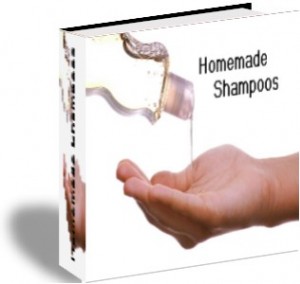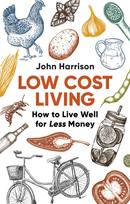In a consumer society used to buying products based on pretty packaging and special offers the average household now has on average over 50 different toiletry products with only 10 being used on a daily basis by the occupants. When taking into account the different chemicals used in these products, the wasteful packaging and the use of non-recyclable materials, these products have a detrimental effect not only on our wallets, but also our health and the environment.
 Having tried numerous products and having been previously guilty of buying products that I haven’t even required because of so-called special offers and fancy packaging with the thought of “oh, it’s only £10 for two and it looks so nice and good quality it must be a good deal”, I have now managed to dramatically reduce my consumption of these products, and the result has been clearer healthier looking skin, no more sensitive teeth, shinier stronger hair and more money in the bank. Remember though, if you’re trying to swap to a more minimal and environmentally conscious lifestyle don’t throw away your current toiletry contents, use these up first or give them to someone else who will use them up and then buy more economically and thoughtfully once these have gone as throwing away unused products onto landfill gives no benefit to the environment or your pocket.
Having tried numerous products and having been previously guilty of buying products that I haven’t even required because of so-called special offers and fancy packaging with the thought of “oh, it’s only £10 for two and it looks so nice and good quality it must be a good deal”, I have now managed to dramatically reduce my consumption of these products, and the result has been clearer healthier looking skin, no more sensitive teeth, shinier stronger hair and more money in the bank. Remember though, if you’re trying to swap to a more minimal and environmentally conscious lifestyle don’t throw away your current toiletry contents, use these up first or give them to someone else who will use them up and then buy more economically and thoughtfully once these have gone as throwing away unused products onto landfill gives no benefit to the environment or your pocket.
Shower Gels, Shampoo & Conditioner, Face Washes and Hand Wash
The market for these products is saturated with bath creams to make you younger, shower gels to wake you up in the morning, shampoos to make your hair fuller and healthier, face washes that will remove all impurities, and advertising claiming the product will make you look younger and more attractive to the opposite sex, and many other ploys that attempt to empty the contents of your wallet into their coffers with you having the hope of looking more attractive. When you sit down and think about it you know this isn’t true and yet when in a supermarket or pharmacy we load our trolleys and don’t think twice about the cost or supposed benefits of these products.
Most shower creams, liquid hand wash, shampoos and face washes contain numerous chemicals that are believed to have detrimental effects on our health, and that are know to have a detrimental effect on our waterways, aquatic life and environment as a whole. The average cream or gel is likely to contain at least SLS/SLES (sodium lauryl (or laureth) sulphate) and parabens (preservatives used in cosmetic products). In studies SLS has been linked with cancer in laboratory animals when topically applied. SLS is a cheap chemical foaming agent that is also used in chemical cleaning products and it is also linked with dry skin and irritation. Those suffering from eczema are particularly sensitive to SLS and studies have shown that removing products containing SLS can relieve symptoms of eczema calming the skin and reducing itchiness.
Use of parabens have also been studied and it has been established that in some men prolonged exposure to parabens can be associated to low sperm counts and decrease in testosterone levels which is believed to be due to parabens acting like the female hormone oestrogen. When washed down the plug hole these chemicals go on to have a detrimental effect on the aquatic eco systems by killing plant life and damaging fish and animal life who swim in and drink from the water.
So, what can we do about this? Well the first thing is to march with our purses away from the main offenders. Plan when you need to buy products and don’t get sucked in by special offers and fancy packaging. As with food, learn to read labels, see what you are putting on to you and your family’s skin every time you wash. A good quality organic soap can be used for your body and face, SLS and paraben free products can be purchased (although these do tend to cost more than ordinary products), make your own shower, bath and hair products or just reduce the number of products used every day.
Good old soap: The current fashion is for liquid soap with lots of packaging and lots more chemicals. The good old fashioned soap seems to have been forgotten and this is a shame as good quality organic soaps work wonderfully on your skin, especially for those prone to spot outbreaks. There are many suppliers and as said before, read the labels and see what’s used in the soaps, then pick soap for your skin type such as honey for dry skin or camomile for sensitive skin. A bar of soap lasts a lot longer than liquid as we often use too much and this just gets washed back into the ecosystem having had little benefit to us in the bath or shower. Perhaps try shampoo soaps which can be purchased and which again last longer than liquids and often contain far less chemicals that could damage your health.
Shop around and use the internet, a lot of high quality independent suppliers have excellent sites and products can be purchased for similar prices to those in supermarkets and pharmacies. In the long term changing the way you buy and what you buy will save you money. Buy one get one free offers will no longer linger in the back of your cupboards and your family will be putting fewer chemicals onto their skin in an attempt to get clean.
For more information on this and other low cost environmentally friendly alternatives try reading John Harrison’s Low Cost Living or visit the site dev.www.lowcostliving.co.uk.


Leave a Reply